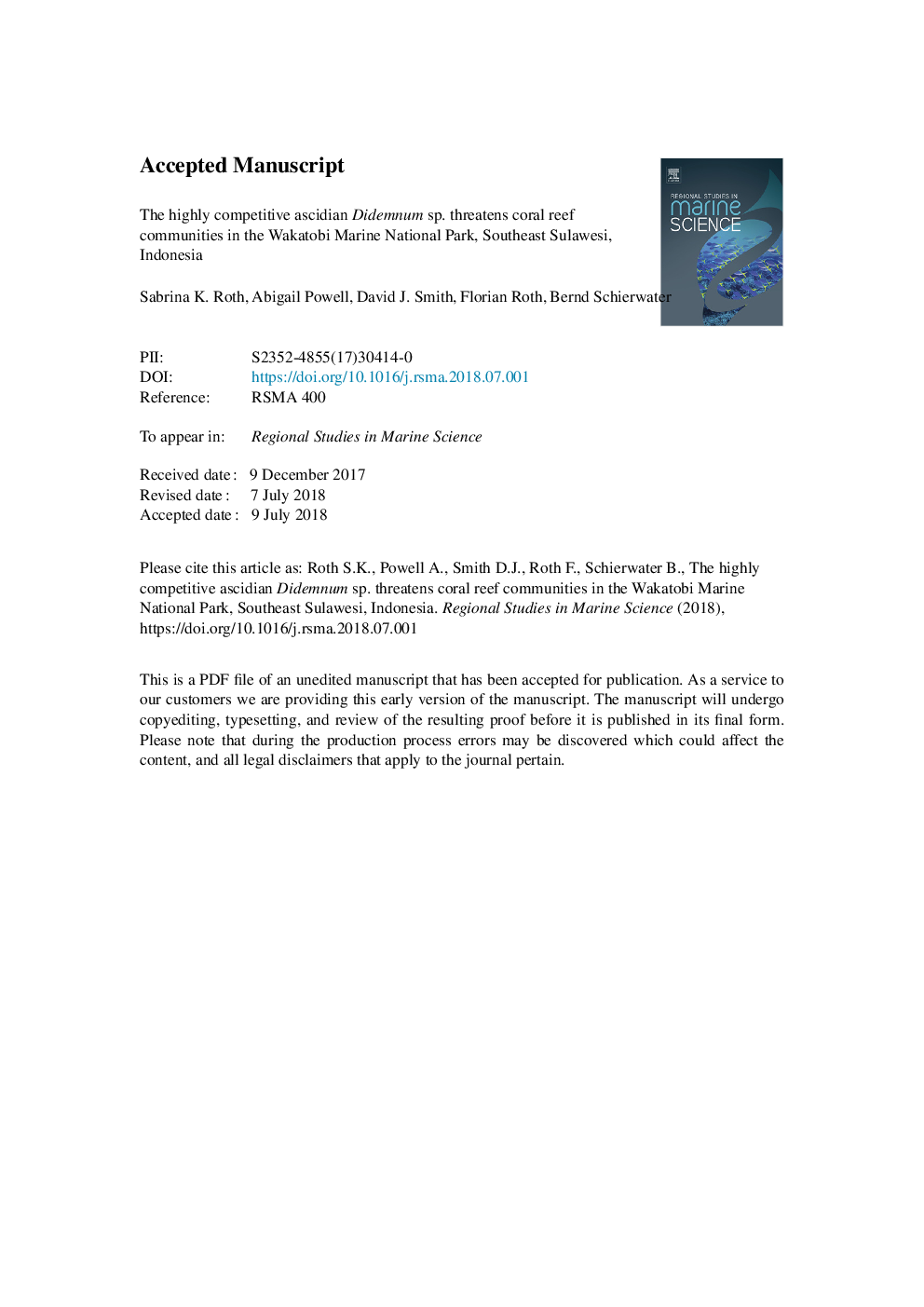| Article ID | Journal | Published Year | Pages | File Type |
|---|---|---|---|---|
| 8872505 | Regional Studies in Marine Science | 2018 | 18 Pages |
Abstract
Coral reefs in the Wakatobi Marine National Park (WMNP), Indonesia, are protected but have been degrading in several areas due to local anthropogenic stressors. In affected areas, benthic surveys revealed the occurrence of a dominant ascidian species of the genus Didemnum, which may negatively impact the benthic community composition and structure. We quantified the abundance, substrate preference, and growth rate of Didemnum sp. in non-degraded and degraded reefs to assess its impact on the benthic community. While Didemnum sp. occurred in similar high abundances in both, non-degraded (0.66%) and degraded (0.75%) reef sites, this species showed a substantially (>10-fold) increased growth rate in degrading reefs (2.7 ± 0.98% dayâ1 increase in colony size, compared to 0.17 ± 0.39% day â1 in non-degraded reefs). Furthermore, Didemnum sp. colonized many different substrates and showed the ability to overgrow live corals quickly. These observations indicate that Didemnum sp. can be a severe threat to a reef community by outcompeting live corals and call for further studies on the interaction between environmental pollution and Didemnum growth patterns in coral reefs.
Keywords
Related Topics
Physical Sciences and Engineering
Earth and Planetary Sciences
Oceanography
Authors
Sabrina K. Roth, Abigail Powell, David J. Smith, Florian Roth, Bernd Schierwater,
